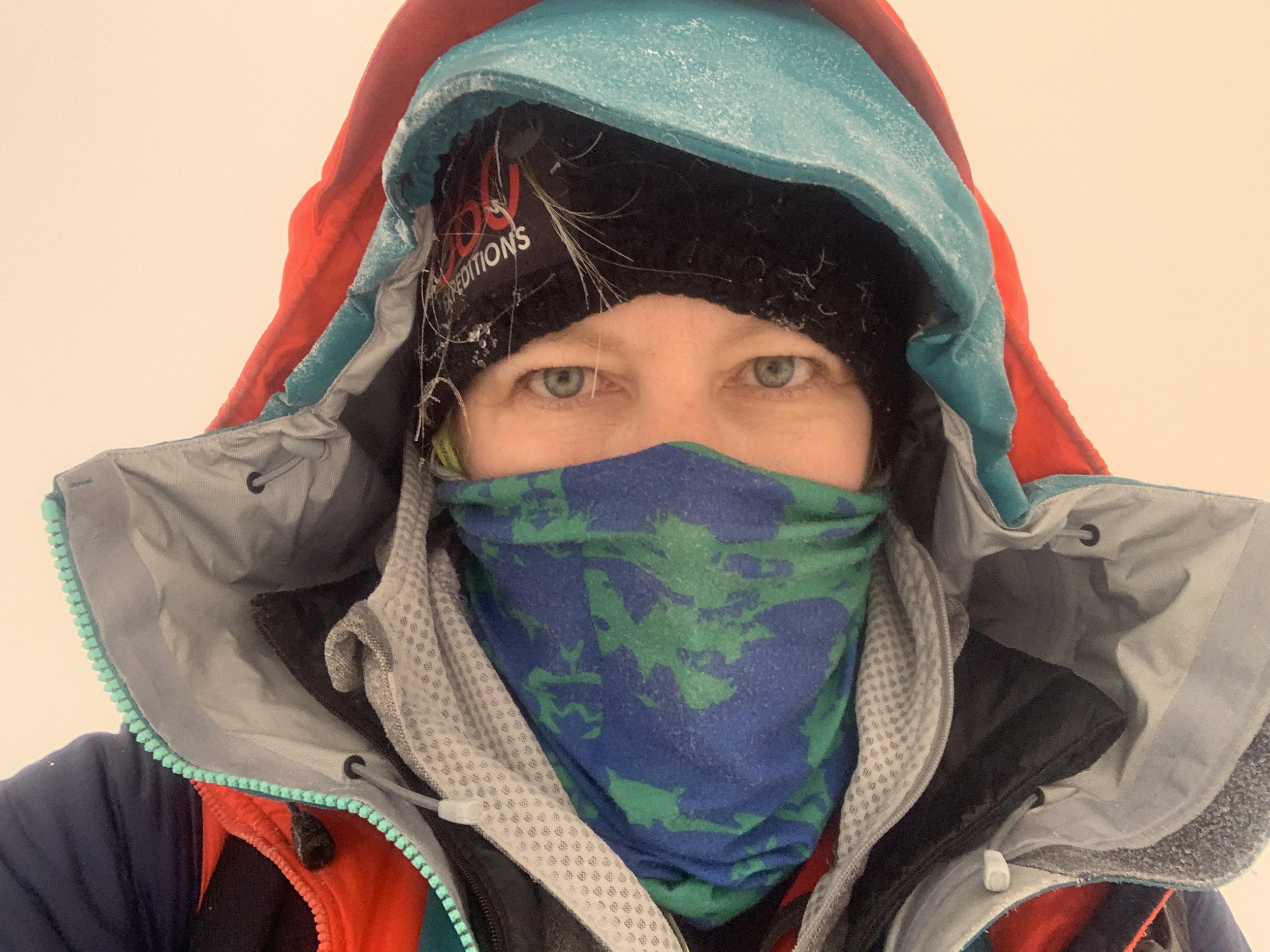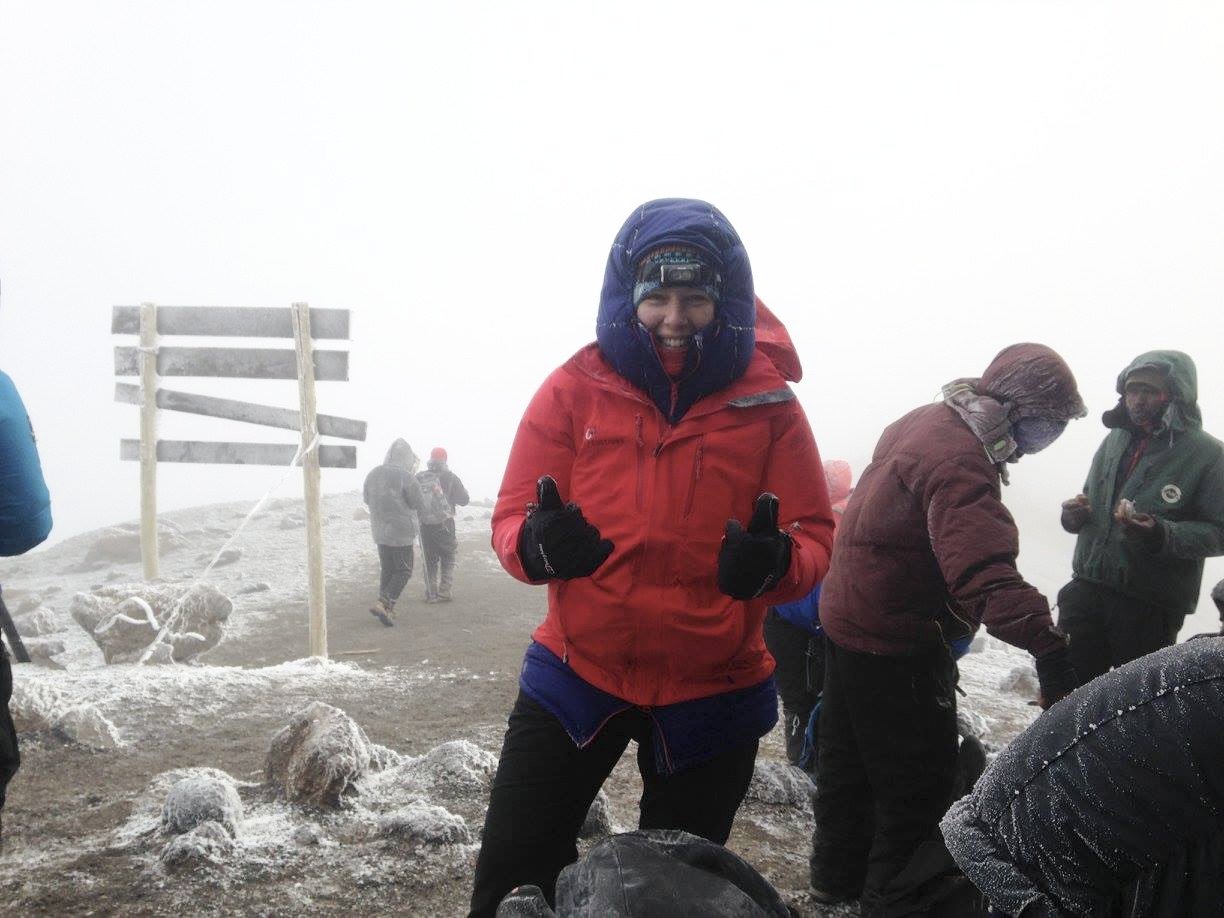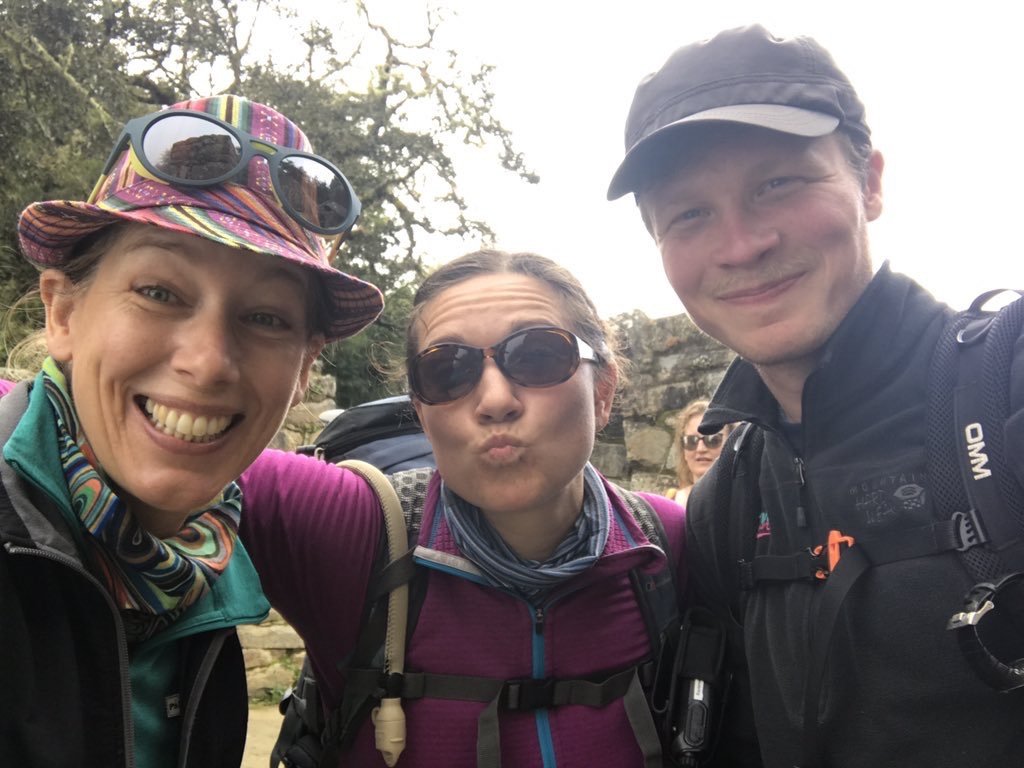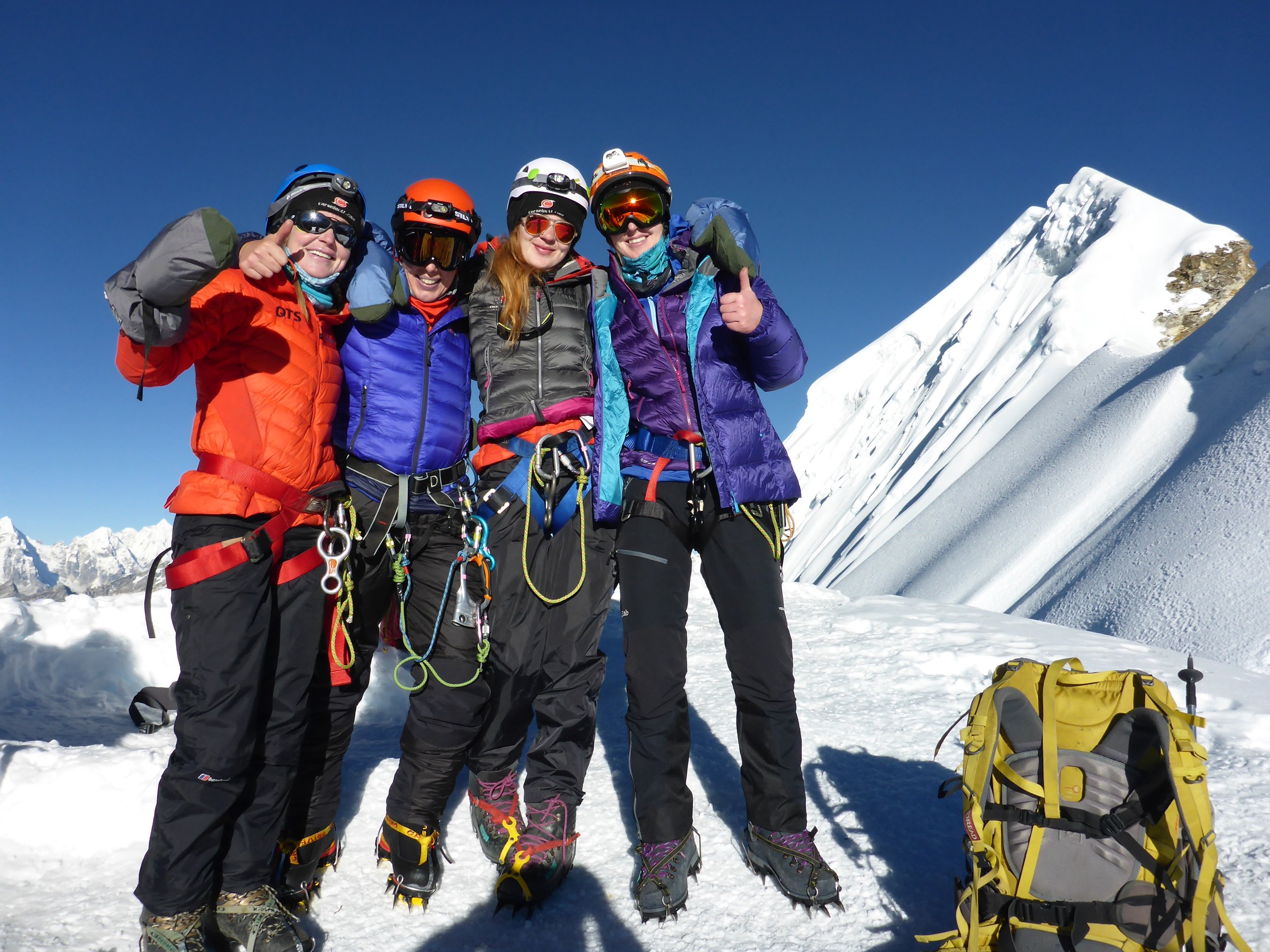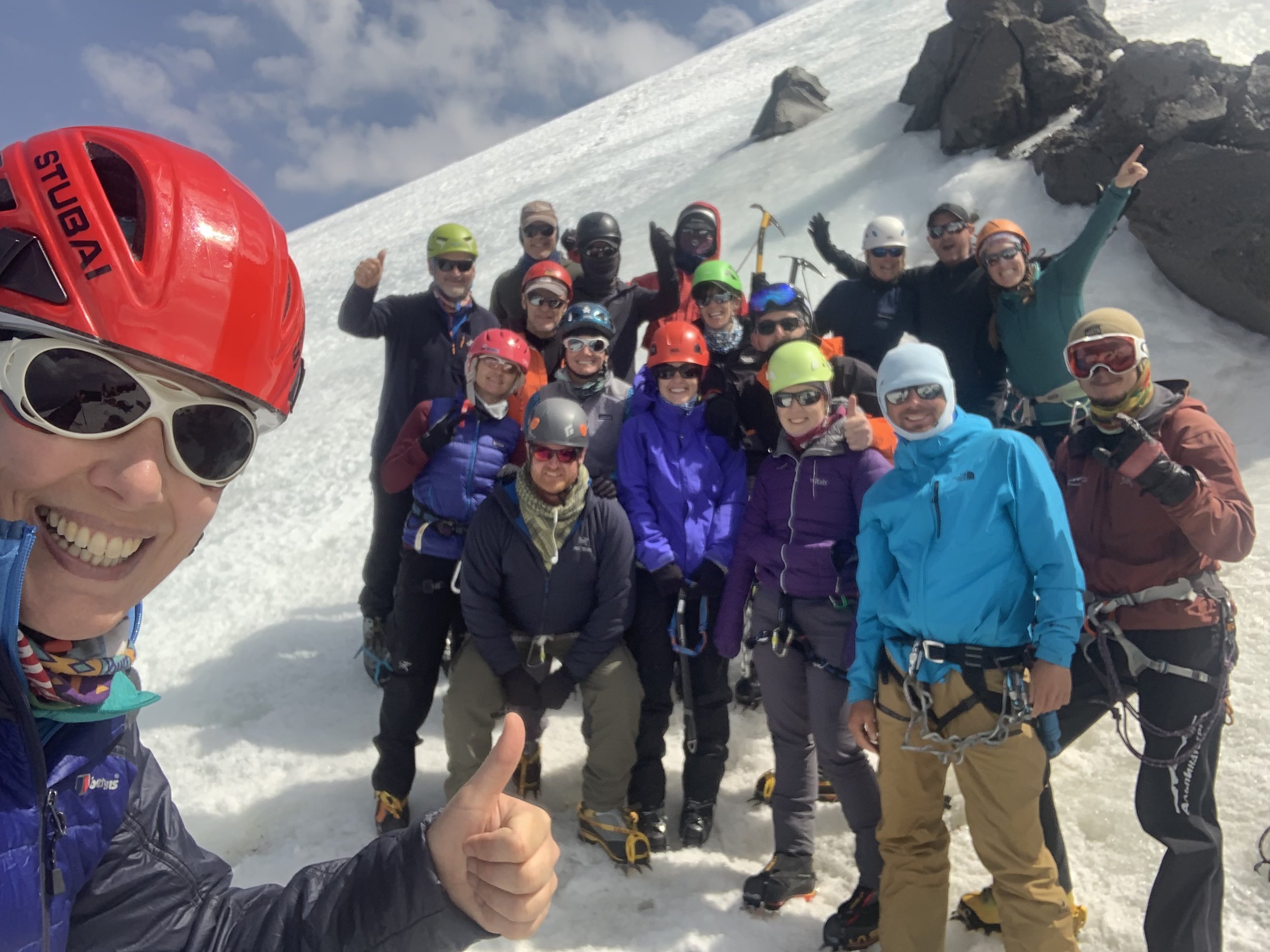Man up Sista and show no weakness
Ooph, harsh words coming out of anyone’s mouth, but these are the words which I have heard a few times from both men and women directed at both men and women in my years of leading in the outdoors. I work in a very male dominated industry where showing even a chink of emotion, kindness or vulnerability was and sometimes still is seen as a weakness rather than a strength. I don’t subscribe to this way of thinking and here is why.
These sentiments are particularly prudent at the moment with my openness to talk about my journey through the menopause and the utter maze of symptoms and information it brings with it, and of how, as a woman, I want to forge my own path as a leader rather than having to conform to a certain type just because I work in a traditionally male industry.
I listened to the great podcast Chatting to a Friend a few weeks ago where host, Catie Friend, interviewed mountain guide Caroline George. The subject of women working and being in the outdoors was discussed at length and I was amazed to learn that women were only ‘accepted’ into The Alpine Club in Switzerland in 1980. 1980!! Caroline spoke so eloquently about the differences between female and male guides, how people judge us by what they see rather than what they know, how we show our strengths in different ways as strength is not just about physical prowess. She spoke about how we adapt our styles depending on the situation, no matter how much we weigh or how physically strong we are, and the difference between women who stand up for themselves or speak up often being labelled arrogant and aggressive, where as men who do the same are said to be assertive. Please listen in as it’s a great podcast for both women and men to learn from.
Being on Everest in 2015 and 2016 was an enlightening experience. I met some truly inspirational people, was a little dumb-struck when meeting some of my mountaineering heroes, caught up with old friends and made many new ones. However, I had never wanted to climb this Mother of all Mountains. I didn’t want to go through the Khumbu Icefall or cross the ladders. I didn’t want to be associated with the journalistic circus of Everest, of the way too many inexperienced climbers who think that just because they are ‘up for it’, have the cash and the dream that Everest is theirs to be conquered without a thought of putting in the proper training and gaining the right skills to get up, and more importantly, down again safely. Alas there was plenty of that to be seen, and there I was in amongst that circus. Sometimes you have to see things for yourself, to understand why people want to climb this incredible mountain with little experience. Don’t get me wrong or start tut-tutting at me, everyone has the right to climb, of course they do, and the majority of climbers, like me, had put in the hours so please read on, this is a ‘2 story connected by a common theme’ blog.
I have been asked many times by clients if I can tell who will summit a mountain or not. I used to try to make a quick assessment whilst waiting for people at the airport check-in but that quickly left my mind. What’s on the outside is quite often different to what’s on the inside. I can’t judge someone’s grit and determination by their demeanour at check-in, that they are the quietest or the loudest of the group doesn’t necessarily translate to what they are like on the mountain, that they have a little more insulation around them doesn’t mean that they won’t deal with the rigours of the challenge to come or that being thin equals being fit. I know that they are immediately forming an assessment of me, a blonde girl, oh dear god, where is the big beardy mountain goat we were expecting, but I’ve become used to that and let my skills and experience do the talking.
Here is an excerpt from a blog written by Liz Daley, a hugely talented mountain guide and skier who tragically died in an avalanche a few years ago whilst living her dream. Her words ring so true for me:
“As a female guide I’ve grown accustomed to encountering people and cultures with diverse ideas about the role of women. I know what I look like, I don’t look my age, I wear bits of pink and do my best to look and smell nice in most situations. In a lot of ways I’m a girly girl. This doesn’t always go over well with clients who get me as their guide after they’ve been expecting some macho mountain man with big muscles and a beard. It seems as though women have to dress and act like men to get respect in many male-dominated occupations—but I want to prove that you don’t have to.
I’m constantly dealing with purvey, chauvinistic comments, skepticism, and superiority complexes. Being the lighthearted person that I am, I blow douchey comments off my back left and right and throw it back in people’s faces in a joking manner. They seem to like that and it seems to be working. I let my actions, work ethic, and skill speak for themselves and I’ve never had a trip end the same way it started with this kind of behaviour. It’s actually a pretty awesome, empowering feeling.”
Her words also rang true for what I saw and went through on Everest and sometimes still do when I am leading. I’m sure many people looked at me on Everest, then at Rolfe my mountain co-pilot, then at me and in their heads went ‘poor sod being landed with that blonde chick’. There were comments on a particular Facebook feed of his which said just that. I had and have nothing to prove to anyone but myself. I had trained hard, earned my stripes and learned the skills by putting in the hours, months, and years in the mountains so that I was capable of getting myself up and down without assistance. At base camp and in the ice fall I saw many people learning to walk on ladders, to ascend a rope, to abseil down one, all for the first time. Everest is not a training ground where you learn these skills as you are putting yourself, your Sherpas and other climbers around you at risk, you need to come prepared.
I used to get really agitated by people’s comments about me being their leader because I am a woman, the gender bias can be overwhelming, but life is too short and I now slough it off. Recently I was put in a situation where it was indicated to me that being female looked as though it would be detrimental to being able to lead a particular group. I do sometimes wonder what century are we living in? Conversely, clients will book with me because they like my style so as with everything in life, it’s a yin and yang world.
However, this issue isn’t going to go away and me fronting up and getting all agitated about it hinders the change in opinions rather than helps. Whether being a leader or a mountaineer quietly trying to get on with climbing whichever mountain or leading male, female or mixed groups, gender should not and does not matter; it’s how you conduct yourself that counts. Treating others as I would like to be treated is a way that I conduct my life, giving people the benefit of the doubt when they get angsty in situations where their anxiety levels are through the roof and I’m in my comfort zone, it’s all part of the rich tapestry of life and goes with the territory however I don’t suffer fools gladly.
I have adapted my leadership style from my early expeditions where I thought that I needed to be everyone’s friend and realised very quickly that this approach does not work in extreme environments. I began to adopt a tough love and educational approach which I have honed over the years and it seems to work well. I would like to be known as a good leader, not a good female leader. The gender prefix has no place in the 21st century.
However, I have had to adapt my leadership and teaching styles even more over the last year or two due to the myriad of symptoms that the menopause has thrown up. I have been open about my symptoms and how it has affected me mentally and physically in my previous blog - Am I losing my mind. The Menopause and me. I have been told over the last 8 months that I need to be quiet about what I am going through, that I need to show no weakness, show no vulnerability and keep my emotions to myself to be able to do my job properly and to be respected. As I mentioned earlier, I don’t subscribe to this point of view. I am human. I make mistakes. I learn from them. I move forward. I have hormones, although due to the menopause they seemed to have gone on a temporary holiday but thanks to HRT they are levelling up again. I have learned to use my emotions and vulnerability in a positive way and that showing compassion, empathy, humility, authencitity and mental strength through tough love on expeditions is empowering. I have learned that going through this change of life is a strength and I have learned to once again adapt and overcome.
‘Don’t confuse my kindness for weakness’ wrote Megan Hine, all round amazing human being and expedition leader extraordinaire, on her Instagram feed a few years ago and it really struck a chord with me. ‘Several years ago I was working on screen on a show. After 2 weeks of challenging conditions & looking after crew & cast and emotionally & physically supporting them through a gruelling experience the executive producer came up to me & told me the following...
‘I thought your kindness was your weakness but I realise it is exactly the opposite. The ability to be able under extreme circumstances to retain your love of others & push them to overcome obstacles whilst enduring the same hardships is a strength rarely seen.’ Her book, Mind of a Survivor, is well worth a read.
On a recent leadership development work trip, I was discussing the menopause with a male colleague. He asked what he could do to help the women in his life as a husband, father, brother, friend, boss, colleague and so on. I replied ‘read more, learn more, understand more and be more open to talking more so that we can be more, do more and most importantly, thrive more’.
“Go after what it is that creates meaning in your life and then trust yourself to handle the stress that follows”.
I recently spoke at the WomenEd ‘Leading Through Menopause’ online conference about how I have overcome the varying challenges of being a teacher in the outdoors when your vocab goes on holiday and how I can use my experiences in a positive way when teaching students. To watch, please click here.
